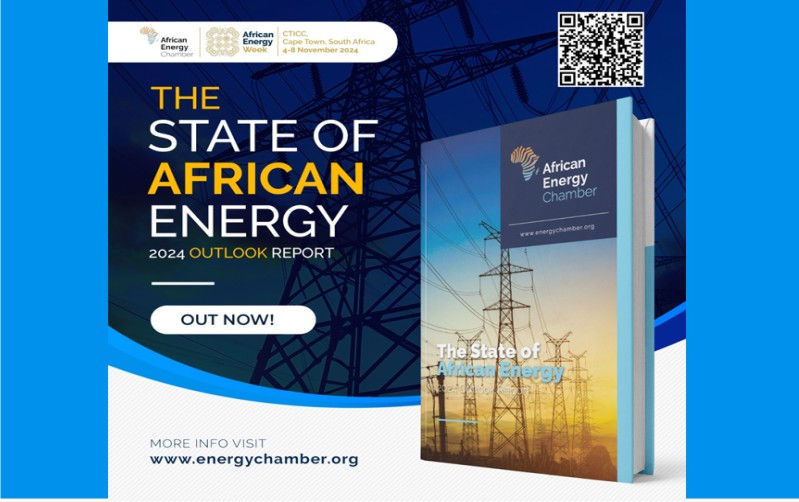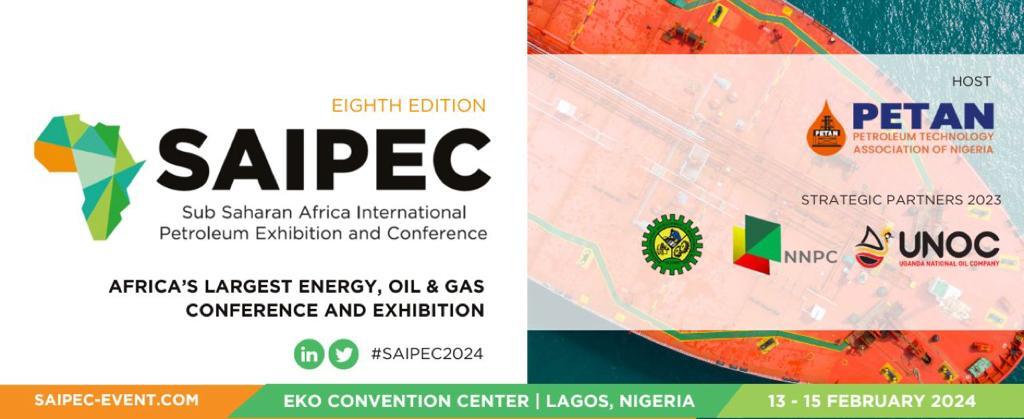
Africa’s energy sector is on the precipice of transformation with large-scale developments kicking off across the continent. Providing a comprehensive overview of the evolving industry, the African Energy Chamber (AEC) is pleased to reveal its latest industry-focused report: ‘The State of African Energy 2024 Outlook’
The AEC’s 2024 Outlook offers insights into projects, trends and projections, serving as the official guide for investing in African energy. From cash flow dynamics and investment trends to production patterns and exploration endeavors, to low-carbon gas and renewables, the report is an essential guide to understanding Africa’s evolving energy sector.

On the capital front, the outlook provides insight into ongoing trends and anticipated changes. The 2023 outlook anticipates a relatively flat evolution of free cash flow and government revenue in Africa for the years 2023–2024. Notably, National Oil Companies (NOCs) and international oil majors emerge as the primary drivers of free cash flow generation during this period. While there’s an expected 25% decline in annual government revenue from 2022 levels, the report shows that it still remains notably higher than the pre-pandemic era, highlighting the industry’s resilience and adaptability to global energy landscape changes.
Regarding CAPEX distribution, North and West Africa are projected to be leaders in both cumulative and annual spending over the next decade, with a strong focus on liquids. Notably, the report identifies Nigeria, Libya, Algeria, Angola, and Mozambique as the top five spenders over this period, with NOCs and major industry players expected to collectively account for two-thirds of total CAPEX. Importantly, the allocation of CAPEX aligns with the ‘Mean’ scenario, aligning with a global warming cap of 2°C, indicating a commitment to climate considerations within the industry.
Global oil and condensate output is expected to increase in 2024, primarily driven by the Middle East and the Americas. Key demand drivers for the next 18 months are the road transport and petrochemical sectors. On the supply-demand front, the analysis reveals a substantial disparity of 2.15 million barrels per day (bpd) is projected for the second half of 2023, with expectations of this gap narrowing to about 1 million bpd in 2024. The Organization of Petroleum Exporting Countries (OPEC) member nations play a crucial role in driving Africa’s oil and condensate output, despite challenges in production compliance due to production declines.
Moreover, there is anticipated growth regarding drilling and rig demand that is expected to persist until 2024, after which a gradual decline is projected. The report forecasts healthy levels of exploration drilling activity for the period spanning 2023–2025, with Algeria, Egypt, Namibia, and Nigeria emerging as primary drivers. With a total of 177 blocks up for grabs in licensing rounds across Africa and awards for these blocks anticipated to conclude within the next 18 months, the report highlights strategic opportunities for E&P players.

Regarding gas, the report foresees a notable global surge in demand for both natural gas and liquefied natural gas (LNG), surpassing existing supply levels. The global gas market’s equilibrium hinges on new projects and untapped reserves, and the report emphasizes natural gas’s enduring significance in Africa’s energy mix up to 2050, with the continent on the brink of becoming a top-five LNG exporter. North Africa is expected to lead in natural gas supply while West Africa will drive LNG exports.
Meanwhile, the anticipated growth in renewable energy capacity, primarily driven by solar and onshore wind resources, presents a significant shift in the energy landscape. The report shows that hydrogen is poised to play a progressively influential role, particularly during the 2030s, signifying the industry’s commitment to sustainable energy solutions. Countries such as Egypt, Morocco, Mauritania, and South Africa emerge as leaders in advancing sustainability efforts.
“We are proud to offer the State of African Energy 2024 Outlook for download. The report emphasizes the pivotal role of knowledge and foresight in navigating the complex and dynamic energy landscape and equips stakeholders with the insights they need to make informed decisions in the year ahead. As we venture into 2024, we are on the brink of making substantial strides in overcoming energy poverty through Africa and moving towards a more sustainable energy future,” states NJ Ayuk, Executive Chairman of the AEC.

Please wait....
Thank you for subscribing...